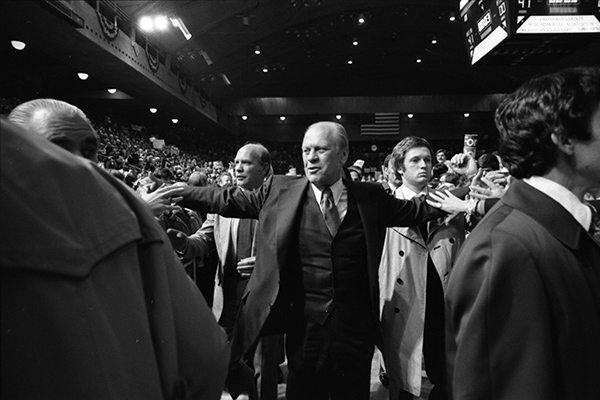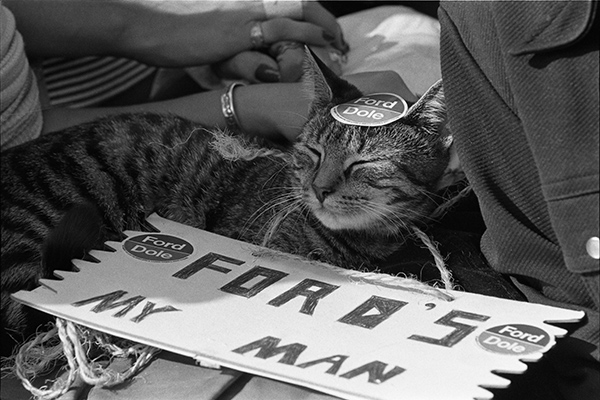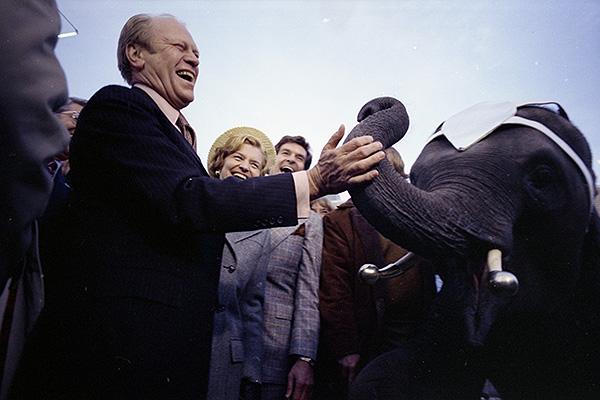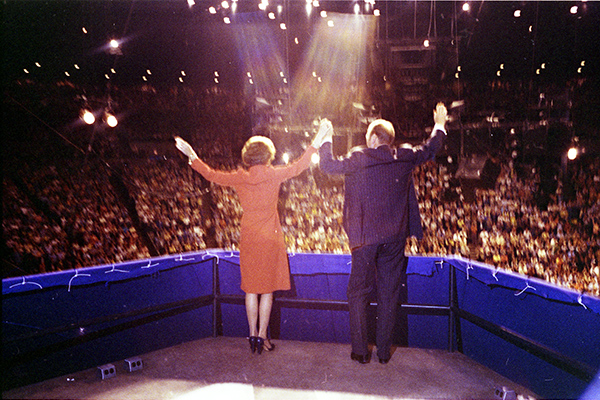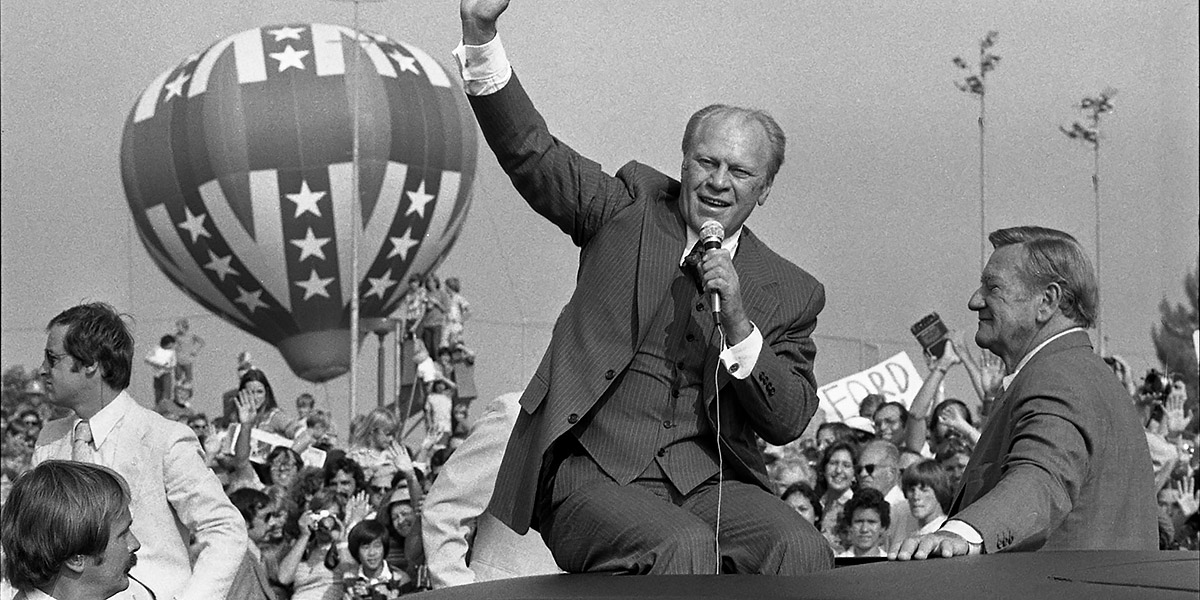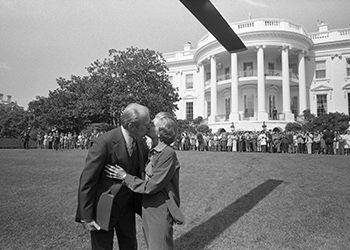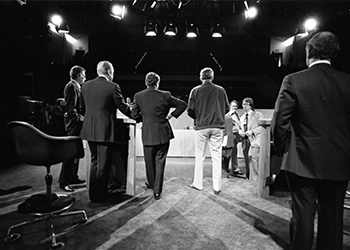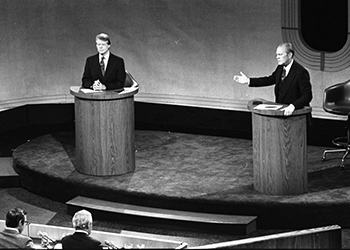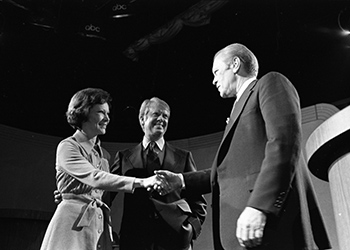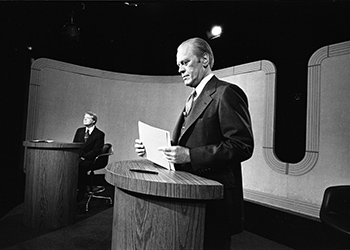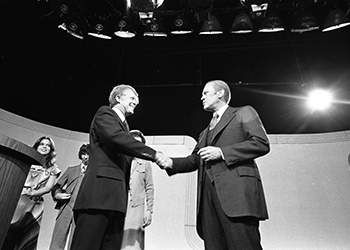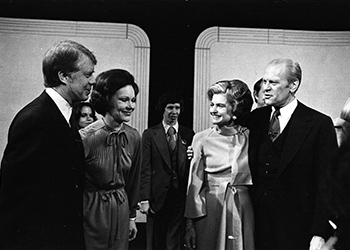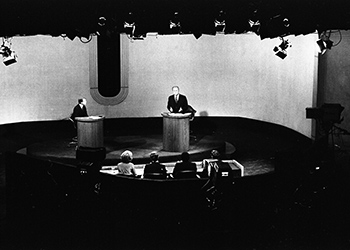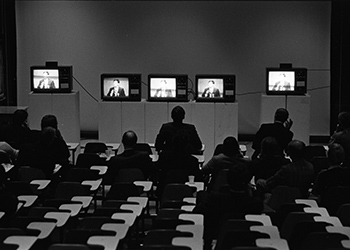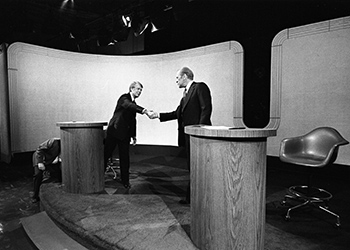Barbara Walters moderated the third debate, which took place on October 22. Unlike the other two debates, this discussion
was open to all issues and topics. Various questions were asked, including inquiries involving problems in
specific cities, minorities, gun control, and the Supreme Court. Shortly after the debate began, one of the questioners
asked Ford if he would be willing to release tapes of conversations held in the White House during the time that Watergate
had occurred or if he could ask those with the authority to do so. His response was, "That’s for the proper authorities who
have control over those tapes to make that decision. I have given every bit of evidence, answered every question that's been
asked of me by any senator or any member of the House. Plus the fact that the special prosecutor, on his own initiation, and
the attorney general on his initiation, the highest law enforcement official in this country; all of them have given me a
clean bill of health. And I’ve told everything I know about it. I think the matter is settled once and for all." When one
of the questioners asked Carter if he would like to respond to Ford's statement, he said he did not have a response. The
questioners continued to ask the two candidates for their opinions and did not bring up Watergate again.
A coin toss a month earlier in Philadelphia determined that President Ford would make the first closing statement of the third debate.
Each candidate had four minutes to do so. Ford summarized his experience in Congress and as President. He then pointed out that
he believed his Presidency had healed the American people in a difficult time and reminded the audience he had always been
"candid and forthright." He expressed his love for the country and said he would be honored to have support on election day.
He let the audience know he wanted them to say, "Jerry Ford, you've done a good job, keep on doing it."
Carter began his closing statement with his beliefs about the election and current administration. "The major purpose of an
election for President is to choose a leader. Someone who can analyze the depths of feeling in our country to set a standard
for our people to follow, to inspire our people to reach for greatness, to correct our defects, to answer difficult questions,
to bind ourselves together in a spirit of unity." He claimed the Ford administration had not made much progress. Carter
highlighted his experience outside of politics and said he could work with Congress and bring a new spirit to Washington, DC.
He mentioned inflation and employment and said that through working together, he could revitalize the country. He ended his
comments saying, "And with inspiration and hard work we can achieve great things. And let the world know – that's very
important. But more importantly, let the people in our own country realize that we still live in the greatest nation on earth.
Thank you very much."
